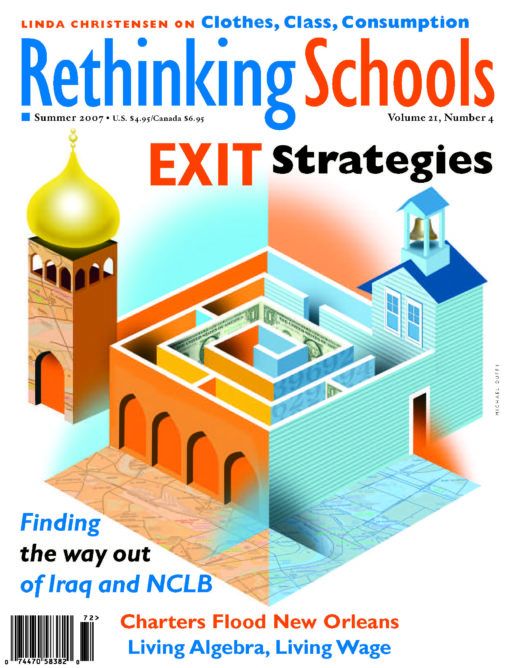Good Stuff 21.4
The Public School and the Private Vision: A Search for America in Education and Literature
By Maxine Greene
(The New Press, 2007)
How Kindergarten Came to America: Frederich Froebel’s Radical Vision of Early Childhood Education
By Bertha Von Marenholtz-Bulow
(The New Press, 2007)
I feel fortunate to have been asked by The New Press to develop a series of books consisting of reprints of classic books on progressive education. The series is a way for me to keep current educators in touch with their elders and re-inspired by ideas that are as useful and controversial today as they were when originally published.
The first two books have just been published: Bertha Von Marenholtz-Bulow’s How Kindergarten Came to America: Frederich Froebel’s Radical Vision of Early Childhood Education; and Maxine Greene’s The Public School and the Private Vision: A Search for America in Education and Literature.
Educator Mary Mann translated the English-language edition of How Kindergarten Came to America. Her husband was Horace Mann, the first U.S. Commissioner of Education. Her sister was Elizabeth Peabody, a feminist and creator of the first English-language kindergarten in the United States. In her introduction to the book, first published in 1895, Mann called kindergarten “the free republic of childhood.”
The idea of freedom for young children and the sense that they could be self-governing was radical in its day; it’s an equally radical idea for the 21st century.
The book focuses on the specific details of developing children for democratic living. It is also a wonderful and moving account Frederick Froebel’s life, a central figure in the development of early childhood education. Bertha Von Marenholtz-Bulow was very close to Froebel, so the book is full of the sometimes wonderful and sometimes sad tale of his life, which is set in the context of the failed people’s uprisings in the 1840s and the 1870s. He saw the revolution not in the streets but in childhood and education. This is the inspiration behind the notion that education is the essential element of movements for social change.
Maxine Greene is one of the leading educational philosophers of the past 50 years. The Public School and the Private Vision, published in 1965, traces the complex interplay of literature and public education from the 1830s to the 1960s. The book considers the changing shape of American culture since the founding of the common schools in 1837. Common schools were the first free public schools in the United States.
The book presents the rhetoric and convictions of school reformers for the last 150 years in counterpoint to the perspectives of writers at approximately the same time. Greene’s point is not that writers commented directly on the schools, but that they brought to the surface values, ambiguities, and unanswered questions relevant to schools; questions either ignored or unspoken by school reformers. These are questions we still have to answer.
There is a need, too, for educators to be self-educated and not depend on consultants and hucksters to learn about educational ideas. It is up to us to return to the sources of progressive, caring, partisan education as we continue to struggle against the antichild and antipeople forces that have come to dominate education these days.

